Women are more likely than men to say that Kavanaugh should not be confirmed
Last week’s Senate Judiciary Committee special hearing about allegations of long-ago sexual misconduct by Supreme Court nominee Brett Kavanaugh did not improve the Judge’s image. In the latest Economist/YouGov Poll, Americans find his accuser, Dr. Christine Blasey Ford, more believable. Kavanaugh is viewed unfavorably, and opposition to his confirmation has increased incrementally. Women, particularly independent women and college educated women, are especially negative about him.
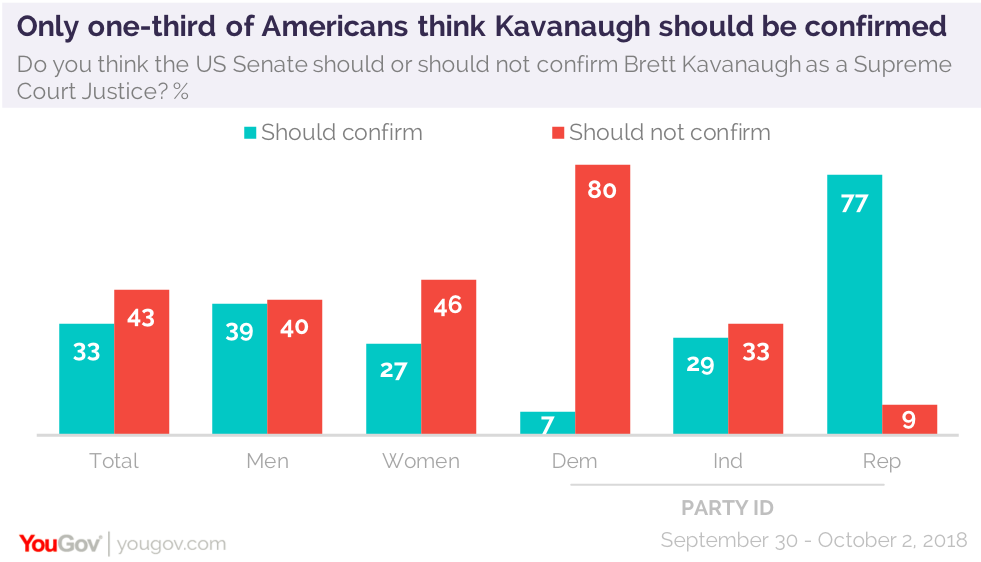
When it comes to confirmation, Americans with an opinion lean more against confirmation than they did a week ago, before the hearing. Republicans are strongly in favor, Democrats are clearly opposed and independents are closely divided. (The large partisan divide exists on nearly every question). But the split within independents is striking: men narrowly favor confirming Kavanaugh, while women oppose the confirmation, as they did last week.
Factors that affect whether women favor or oppose confirmation of Judge Kavanaugh are age and education, perhaps reflecting women’s own personal experiences. College-educated women are clearly opposed, while those who did not attend college are divided; younger women oppose confirmation three to one, older women are as likely to favor it as oppose it.
Similar patterns exist when it comes to the public’s overall opinion of Judge Kavanaugh (34% are favorable towards him, 43% are not) and whether they see him as honest and trustworthy. 32% believe he is honest; 40% disagree. As for whether or not he is qualified to serve as a Supreme Court Justice, Americans are evenly divided – 38% said he is qualified, while 37% say he is not.
Americans narrowly believe the charges outlined during the hearing by Dr. Blasey Ford, and by 41% to 34%, think the allegations are probably or definitely true. Men are divided; women believe Ford’s allegations by three to two.
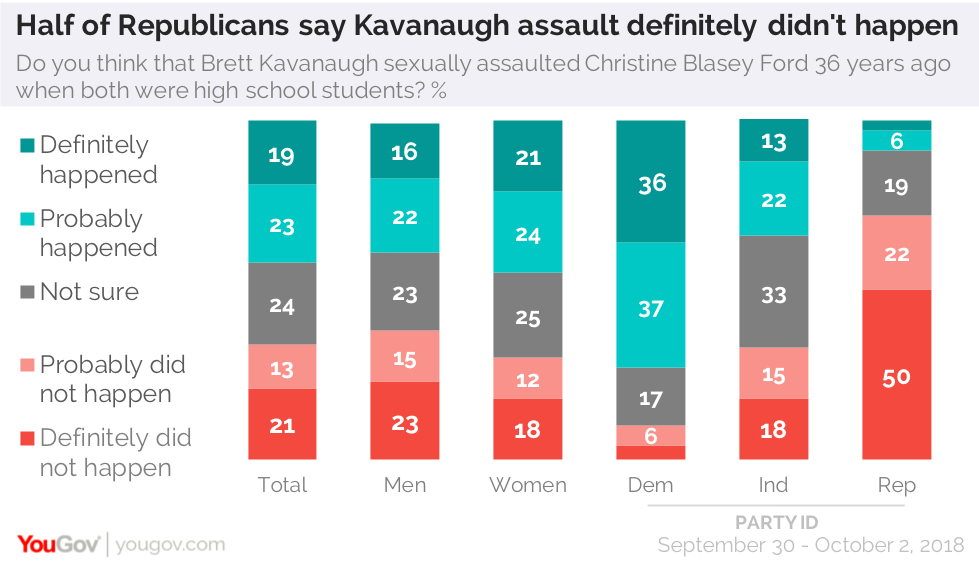
To the public, Ford was more believable than Judge Kavanaugh. More think she was telling the truth about her memories of what happened than that she was not telling the truth. The opposite is the case when Americans evaluate Judge Kavanaugh. Men are closely split when evaluating the honesty of each person, but women clearly believe that Dr. Ford is telling the truth and that Judge Kavanaugh is not. The overall gender difference is replicated when looking only at men and women who call themselves political independents.
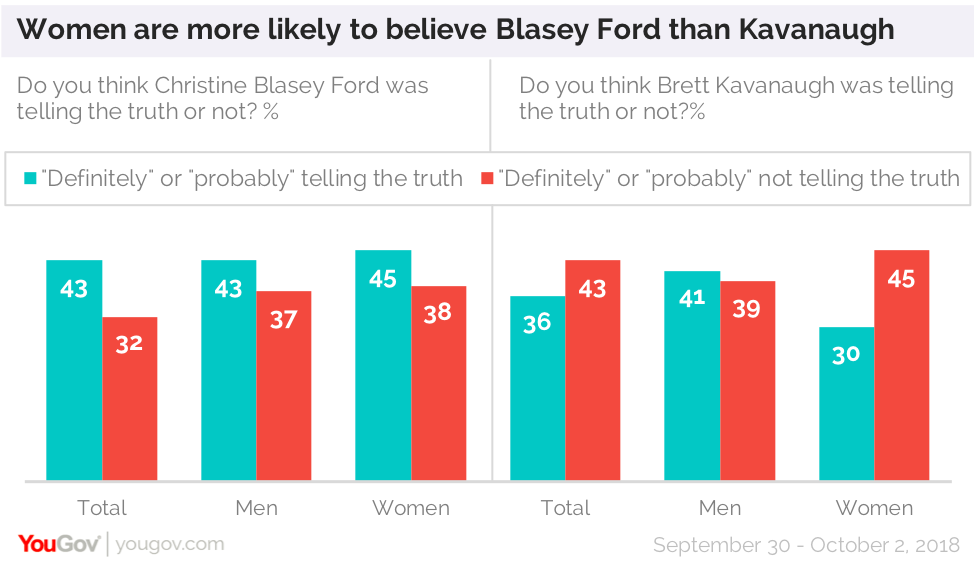
Many choose not to take a position on this, but still give Kavanaugh narrow support when it to truth-telling. Independent women are clearly dubious about his story.
Gender differences among Republicans are different from the pattern among independents. GOP men and women believe Kavanaugh and disbelieve Ford, but one in four Republican women take no position on Ford’s allegations. Democratic women are even more sure than Democratic men about Ford’s truthfulness: 73% of Democratic men think Ford is definitely or probably telling the truth, and 81% of Democratic women agree.
What if Ford’s allegations are true? Most Americans think that would disqualify Kavanaugh from serving on the Supreme Court. But a majority of Republicans disagree.
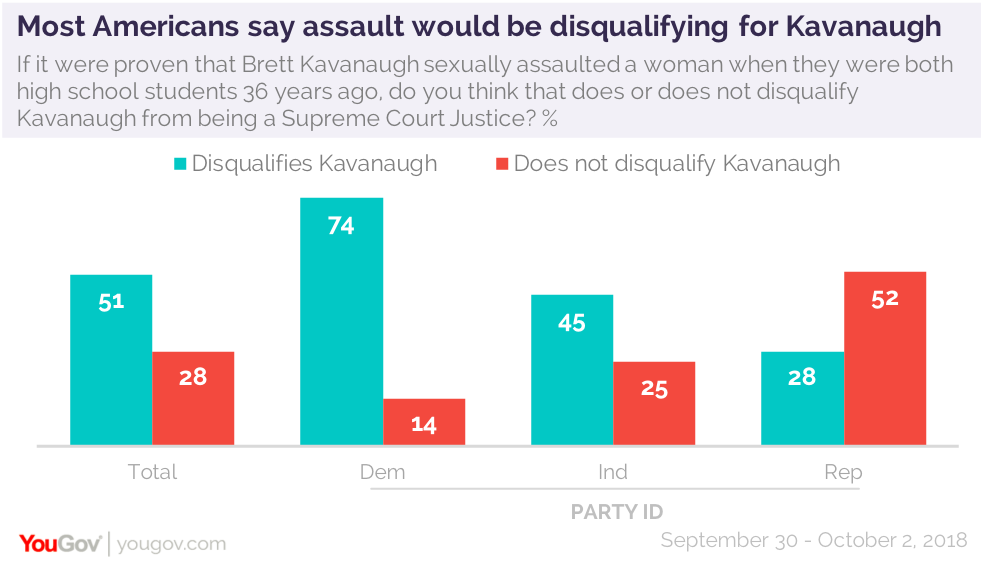
Two questions elicit significant overall popular support: Americans approve of having the FBI investigate Ford’s charges, and prioritizing the right of someone accused of misdeeds to be considered innocent until proven guilty over the right of a victim to be believed. But partisanship affects the responses to both these questions. A majority of Republicans disapprove of asking the FBI to investigate the Ford allegations (and nearly a third strongly disapprove); a majority of Democrats say it is more important to believe the woman.
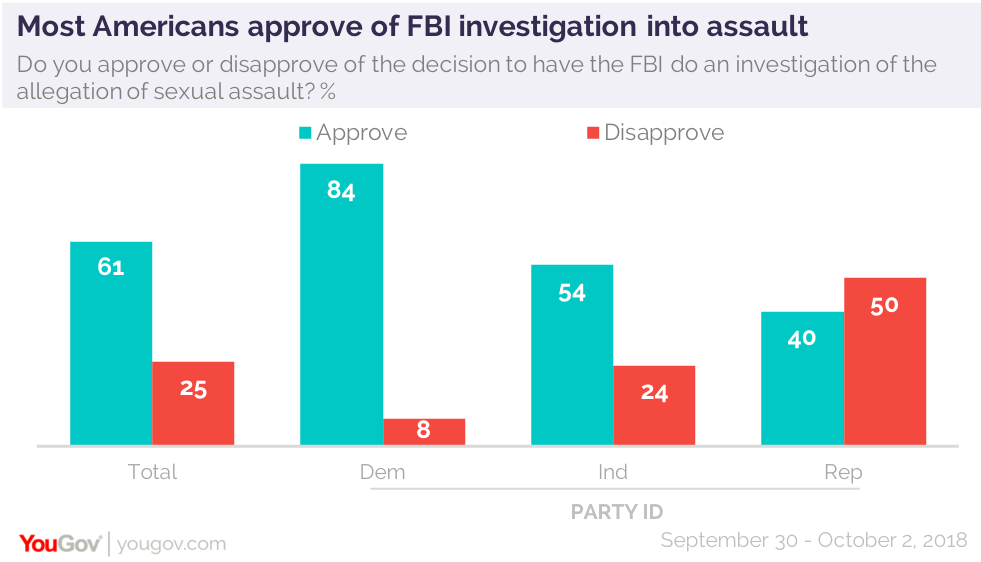
See full toplines and tables results
Image: Getty






